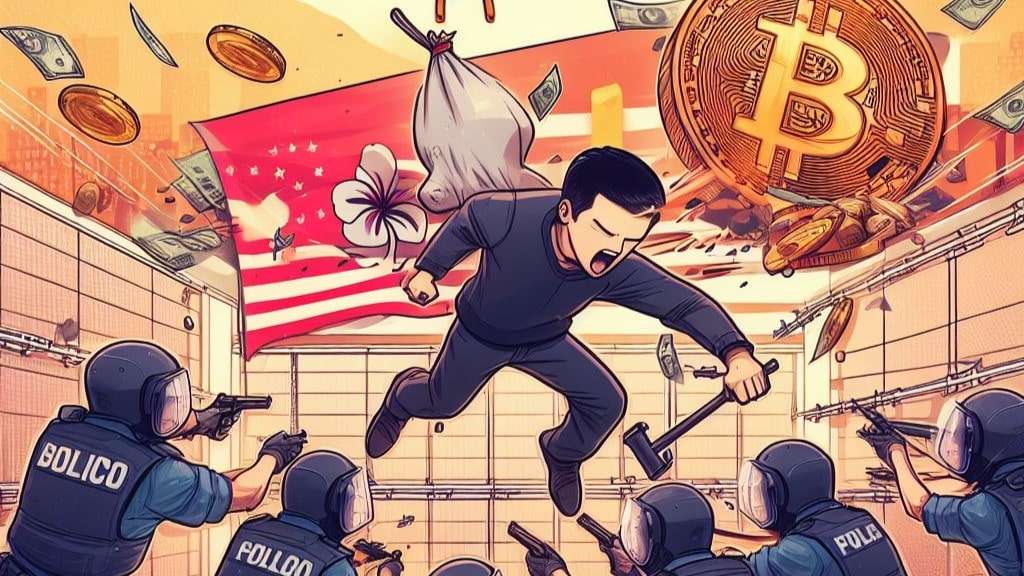
In recent weeks, the Hong Kong-based cryptocurrency exchange, JPEX, has found itself in the eye of a regulatory storm. This unfolding saga has not only captured the attention of the crypto community but has also raised concerns about the stability and security of digital assets. Here’s a comprehensive overview of the events that have transpired, shedding light on why JPEX is facing such difficulties.
Week 1: Regulatory Issues Begin
The trouble began on September 12th when Hong Kong’s Securities and Futures Commission (SFC) issued a stern warning. The SFC alleged that JPEX was operating and promoting its services without proper registration. Furthermore, complaints from JPEX customers started surfacing, citing issues such as failed withdrawals and altered balances.
JPEX responded on September 13th, acknowledging the complaint but primarily addressing its failure to obtain the necessary licenses. They claimed that they had been actively trying to comply with the relevant regulations since February.
However, the situation escalated on September 14th when JPEX decided to raise withdrawal fees. Reports from users indicated that the exchange had hiked Tether withdrawal fees to a staggering 999 USDT per 1000 USDT, effectively creating a de facto block on certain withdrawals. In addition, JPEX announced an emergency withdrawal process.
Despite these challenges, JPEX maintained its commitment to operate, albeit with some adjustments. On September 15th, they suspended their “game lobby” but reassured users that they believed the platform would not collapse.
By September 16th, JPEX stated that it was processing withdrawal requests, trying to mitigate the impact of the regulatory storm.
Week 2: Reports of Arrests Surface
The situation took a dramatic turn on September 18th when Hong Kong police arrested Joseph Lam Chok, an influencer connected to JPEX who went by the pseudonym “jolamchok.” Additionally, five other individuals with ties to the exchange were also arrested, raising concerns about the extent of the issues at hand.
On September 20th, JPEX faced another setback as telecom providers in Hong Kong blocked access to its mobile app and website, following a request from the SFC. Simultaneously, JPEX applied to deregister its company in Australia.
In an unexpected twist, on September 21st, JPEX announced its intention to transform into a decentralized autonomous organization (DAO) as a means to circumvent regulatory restrictions. This move indicated their determination to find a way forward despite the mounting challenges.
However, telecom services took another hit on September 21st when they began blocking phone and SMS messages from JPEX, causing issues for users trying to access their accounts. In response, JPEX implemented an alternate verification method.
As of September 23rd, reports indicated that a total of eleven individuals had been arrested in connection with JPEX, though its leaders remained free. Users had also filed a significant 2,265 complaints, and an estimated $178 million USD had been affected by the scandal.
Week 3: JPEX Stops Accepting Funds
As the situation continued to unfold, JPEX faced further complications. On September 24th, they advised Hong Kong users to temporarily halt depositing new funds, raising concerns about the stability of the exchange.
On September 25th, Hong Kong’s SFC announced its intention to maintain a list of suspicious virtual asset trading platforms (VATPs), highlighting the JPEX incident as a clear example of new risks in the cryptocurrency space.
Reports on September 27th suggested that law enforcement had made progress, recovering $11 million of assets linked to JPEX and arresting a total of 12 individuals in connection with the exchange.
The turning point came on September 28th when the results of JPEX’s referendum on transforming into a DAO were revealed. Early results showed that 68% of voters favored this transformation, indicating the community’s desire for a fresh start.
On September 29th, authorities in Hong Kong and Macao arrested an additional four individuals connected to JPEX, bringing the total number of arrests to 18. Reports also suggested that a total of $2.8 million had been seized as part of the ongoing investigation. Two individuals arrested in Macao were later released on bail.
The situation surrounding JPEX remains fluid and complex, with both the crypto community and regulatory authorities closely monitoring developments. As JPEX continues to grapple with its challenges and attempts to transform into a DAO, the cryptocurrency industry as a whole is reminded of the importance of regulatory compliance and transparency.
While the fate of JPEX hangs in the balance, the broader cryptocurrency market remains resilient, underscoring the enduring appeal and potential of blockchain technology.

Get the latest Crypto & Blockchain News in your inbox.